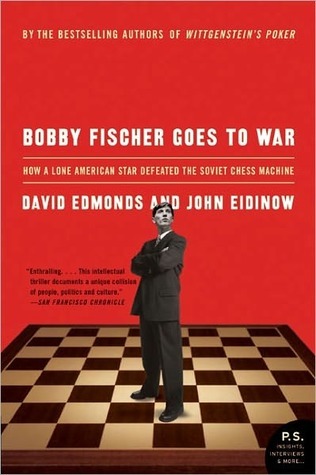Kindle Notes & Highlights
They came to rest in Brooklyn, apartment Q, 560 Lincoln Place, small, basic, but habitable.
It was a problem, Fischer admitted, “because you’re kind of out of touch with real life being a chess player—not having to go to work and deal with people on that level. I’ve thought of giving it up, off and on, but I always considered: What else could I do?”
In Notes from Underground, Dostoyevsky’s narrator calls St. Petersburg (as it was and is) “the most abstract and intentional city in the whole round world. (Towns can be either intentional or unintentional.)”
Genius in chess is a magical fusion of logic and art—an innate recognition of pattern, an instinct for space, a talent for order and harmony, all mixed with creativity to fashion surprising and hitherto new formations.
A law in vector theory is named after the early-twentieth-century German world champion Emanuel Lasker.
But at this time chess was already on its way to taking over Duchamp’s life, eventually ruining his marriage. On his honeymoon, he analyzed chess problems until, it is said, one night, in a rage, his wife glued the pieces to the board.
I have come to the conclusion that while all artists are not chess players, all chess players are artists.”
And in his 1948 novel, The Atom Station, the Nobel Prize-winning Icelandic author Halldor Laxness catches this dissonance in the image of two small boys playing chess while the radio blares out American music.
Yes, because of the small, tightly knit society, intermarriage is not as problematic as in more populous countries and genealogical records allow people to track their ancestors back a thousand years. (Hence, today, Icelanders are the focus of research into DNA.)
The joke doing the Reykjavik rounds was that Fischer had demanded the setting of the sun three hours earlier.
As Fischer seized the title, a Russian sprinter, Valeri Borzov, took from the United States the crown of world’s fastest man.


